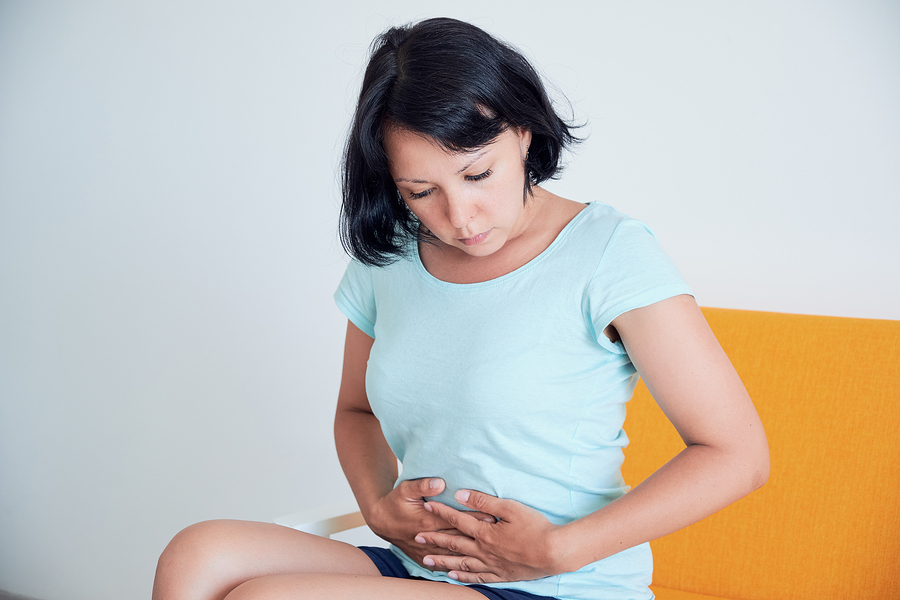Gallstones – the facts
Many of us have gallstones but what exactly are they and how can they be treated?
What are gallstones?
The purpose of the gallbladder is to store bile which is a substance produced by the liver to enable our bodies to efficiently digest fats, the gallbladder then releases bile into the digestive system as it is required. Gallstones are lumps of digestive fluid – usually cholesterol – that form in the gallbladder. These are typically small gravel like stones that don’t cause any pain. In fact, most people are unaware they have them and may only ever be found by chance during the investigation of an unrelated condition.
There are however times when symptoms can occur and the most common of these is pain in the abdomen.
Symptoms of gallstones
Sudden, acute abdominal pain may result if one of the stones moves and blocks a bile duct. This pain can last from 1 to 5 hours and is located in the centre of your tummy between the breast bone and tummy button or just under your right ribs with a sharp pain spreading to the side or shoulder blade.
The pain may be triggered after eating fatty foods, although it has also been reported to wake sufferers up at night. Other symptoms may include feeling nauseous, vomiting or sweating.
More serious symptoms may be more persistent pain, a high temperature (or ’flu like symptoms), rapid heartbeat, jaundice, itchy skin, diarrhoea, confusion and a loss of appetite. These symptoms suggest inflammation of the gallbladder or infection and is known as acute cholecystitis.
Treatment for gallstones
If gallstones have been discovered incidentally and there are no obvious symptoms then your GP would not necessarily recommend any treatment but would monitor your situation.
Some people only have one attack, in which case painkillers would be prescribed. This would also be the case for mild on-going attacks.
However, if symptoms persist or deteriorate, especially if there is pain lasting longer than 2 hours with a high temperature or jaundice it is important to be seen by a medical professional as swiftly as possible.
Acute inflammation of the gallbladder often means being admitted into hospital where antibiotics and pain relief will be given. Once the inflammation or infection has been managed successfully then keyhole surgery may be performed to remove the gallbladder.
How to self-manage gallstones
If you only suffer occasional symptoms then if may be a good idea to keep a diary of when the symptoms occur, this will help you to recognise any triggers and also recognise if your symptoms are deteriorating.
There is no special diet for people with gallstones but it is important to eat healthily to keep yourself feeling well. A low fat diet to avoid irritating your digestive system is recommended along with plenty of fruit and vegetables. It is also sensible to avoid salty foods and to eat high-fibre foods such as wholemeal bread, brown rice and pasta.
It is also a good idea to maintain a healthy weight and take plenty of exercise.
Read more here on how to keep a healthy gut along with exercises to aid digestion and for more general information on gallstones from the NHS
Disclaimer
All content on Silversurfers.com is provided for general information only, and should not be treated at all as a substitute for the medical advice of your own doctor or any other health care professional. Silversurfers will not be responsible or liable for any diagnosis made by a user based on the content on www.silversurfers.com and we are also not liable for the content of any external websites or links from or to Silversurfers to any other websites. Please always consult your own doctor if you’re in any way concerned about any aspect of your health
Melina - Assistant Editor
Latest posts by Melina - Assistant Editor (see all)
- Top tips for hay fever sufferers - April 14, 2024
- Paysan Breton Cream Cheese Breakfast Wraps - April 12, 2024
- 4 Homemade Sweet Treats for Easter - March 24, 2024
- Playground Memories - March 10, 2024
- The invasion of the duvet: the ’10-second bed’ - February 20, 2024





















